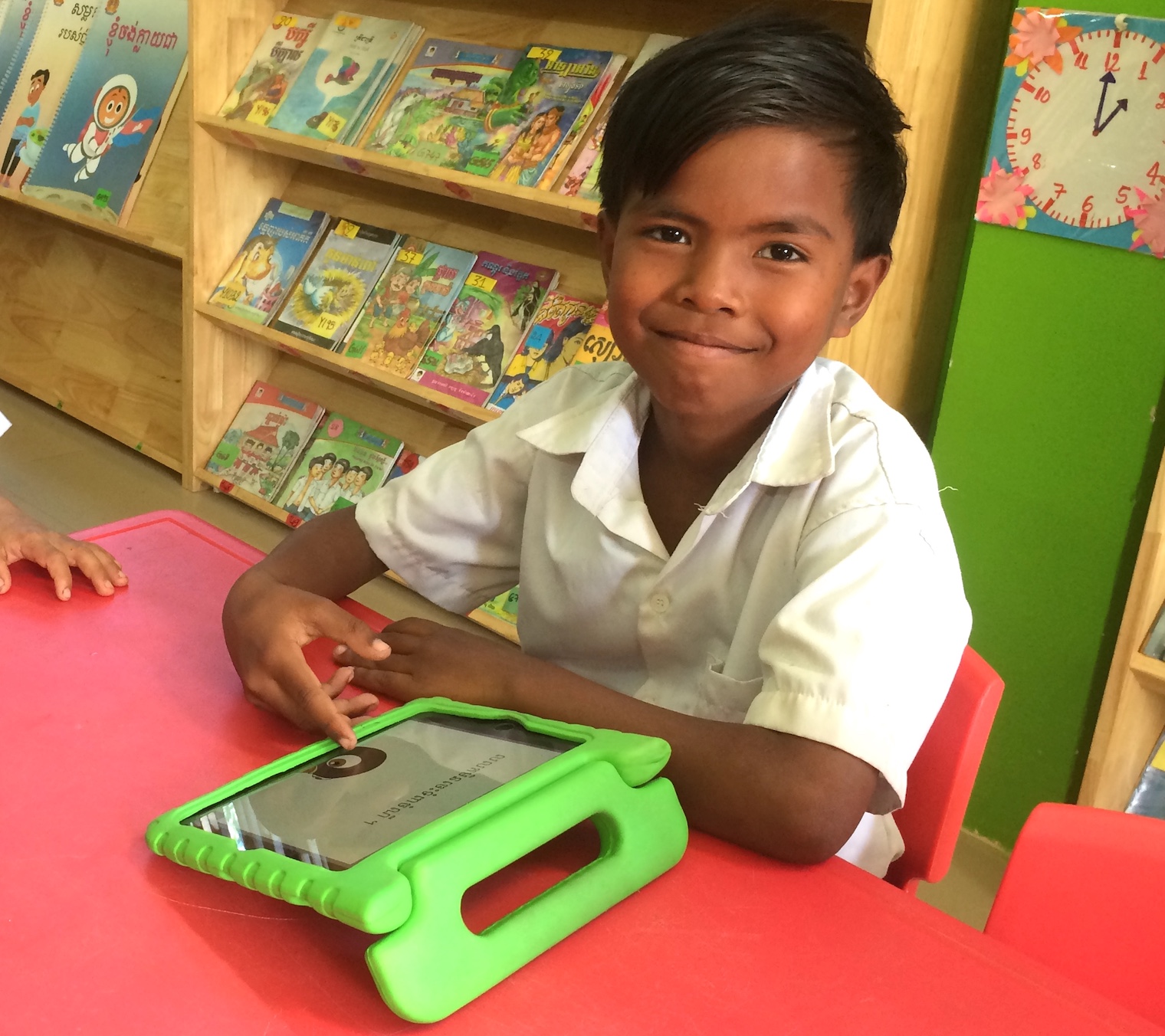
Like the rest of the world, PLF has always had a big focus on bringing STEAM (STEM + ART) courses and activities to students, beginning in primary school. We do this for the same reasons the rest of the world does it: immersing students into STEAM activities teaches creative problem solving, critical thinking, and collaborating and communicating ideas with partners. Children learn to analyze, question, elaborate, refine, and evaluate their own ideas in order to improve their creative efforts. They learn to make decisions based on the results. This is why we have young students involved in arts & crafts classes, chess clubs, science labs and have STEM games in libraries. When students are older they are introduced to Technology when they join computer labs to learn MS Office and other skills valuable in the workplace.
How to get technology into the hands of students at a younger age is something we have always wanted to get done but there are challenges to be overcome working in places with no electricity and certainly no internet.
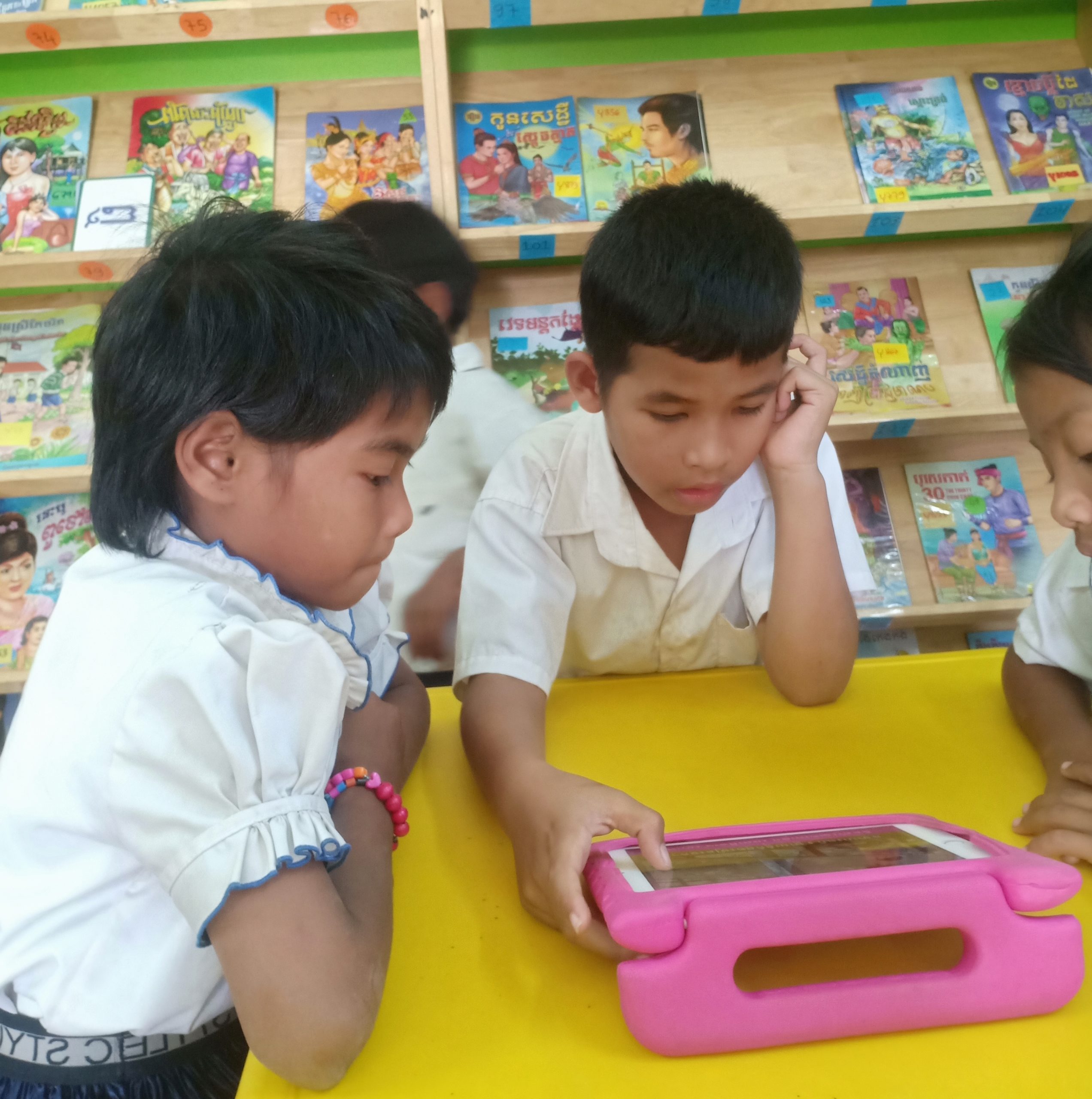
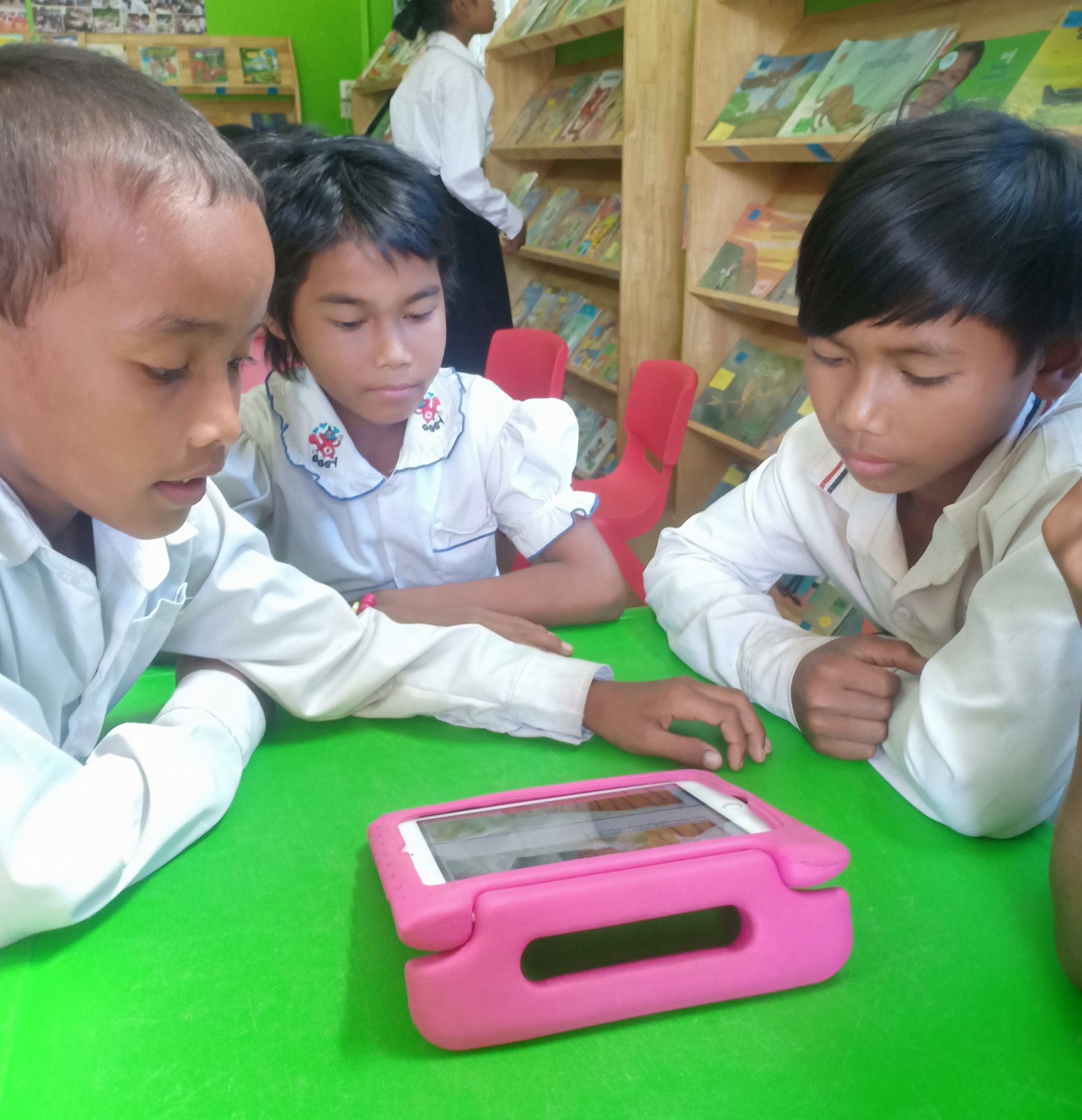
We are very pleased this year to be pushing this envelope finally and are piloting tablets containing hundreds of digital books at the Children’s Library in our Learning Center at Knar.
The tablets were introduced for a couple of important reasons:
1. So many of the amazing new books being published by young Cambodian artists and storytellers are going straight to digital and not being printed by the publishers and therefore unavailable to children who don’t have devices. We tried our hand at having them printed and bound in Phnom Penh but it was expensive and a logistical nightmare. Being able to constantly feed new titles to students on a regular basis was a big argument for digital delivery. We always thought that in remote areas without access to clouds living on the internet, this would not be possible but our friends at edukomondo.org jumped on board and delivered us a “sneakernet” solution with a server that can power devices all over the property. It works a treat and opens several doors that were heretofore closed.
2. #2 is really #1. In primary school boys don’t enjoy reading as much as girls do; they’d just as soon go kick a ball around, which is great but being behind the girls in terms of learning to love reading shows up later in retention/performance metrics across all locations. We wondered if the excitement of “tech” would create enough allure to make hanging out in the library exciting enough for our 4th-grade boys and indeed early indications are that “it has”.
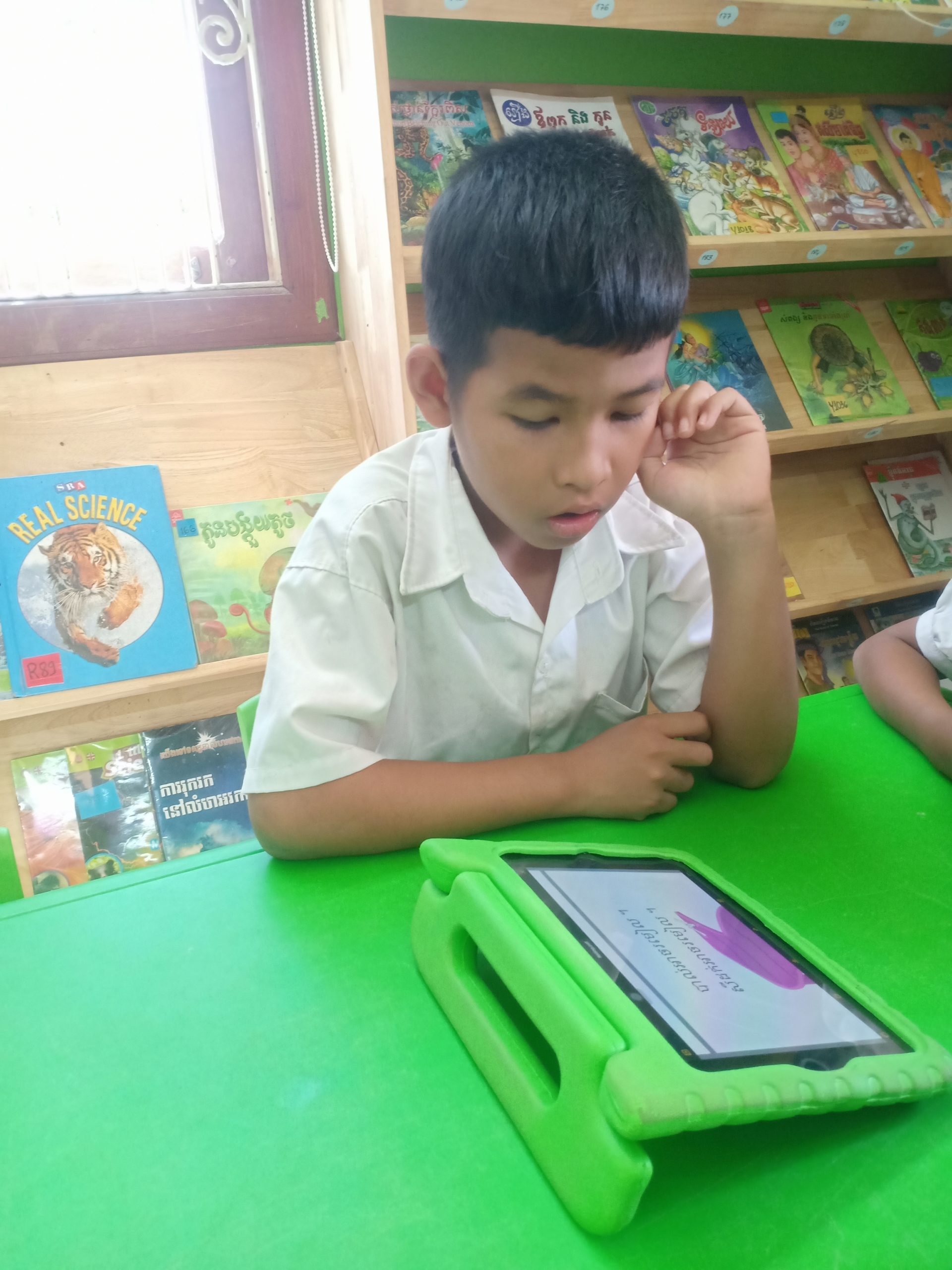
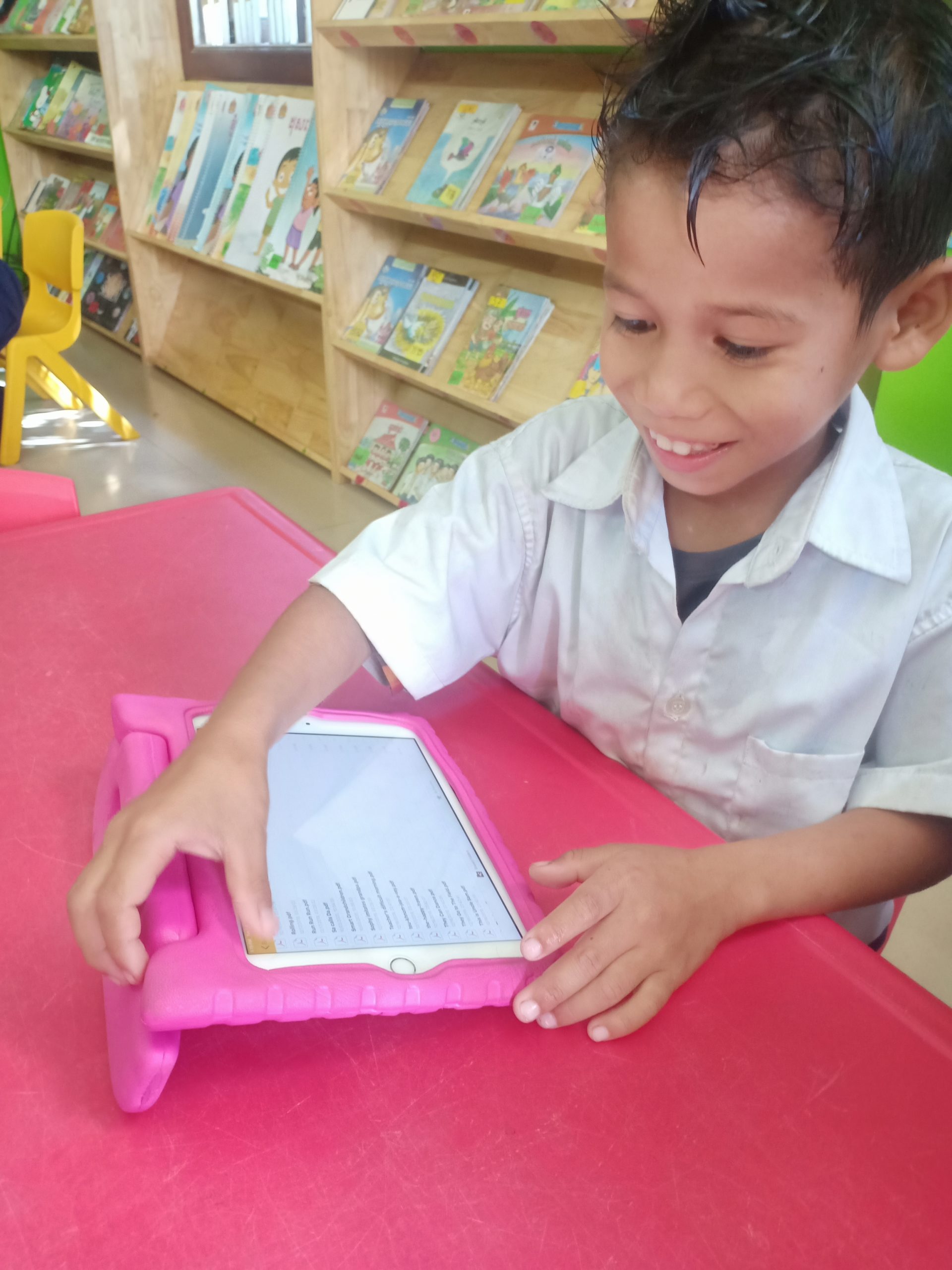
Job done. We’re excited to roll this out to other libraries in even more remote areas as soon as Mr COVID will allow it!
Like the sound of our programs and want to get involved, but not sure how?
For as little as $10 a month, you could contribute to the ongoing education of our students. $120 goes a long way in Cambodia: that’s 5 village children on the road to education, with access to school and clean drinking water for half a year. Or a million other things, all of which coalesce into the tools needed for life to change for the better!
Follow our Instagram or Facebook accounts. Like, comment on or share our posts – Do it. It’s free. And it’s a huge help for us!
Have some questions?
Email us for a chat at [email protected]

Recent Comments